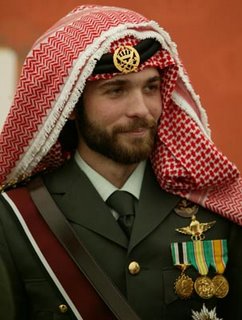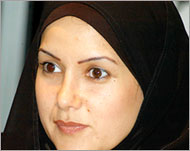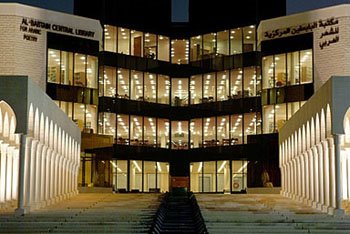
By Judith Sudilovsky, 4/5/2006, Catholic News Service (www.catholicnews.com)
JERUSALEM – Israel will have its first Catholic Arab female parliament member when Nadia Hilou is sworn in April 17 at the opening of the Knesset's 17th session.
Nadia Hilou, a Catholic and an Israeli Arab, is seen during a visit to the Hirsch Early Childhood Development Center in Jaffa, Israel, April 3. She won a seat in the Israeli parliament and will be sworn in April 17. (CNS)
The social activist for early childhood education and women's rights won the seat reserved for a woman candidate March 28.
Hilou, 51, national vice president of the Na'amat women's organization, said she first decided to enter politics in 1995 with the signing of the Israeli peace accords with the Palestinians.
She said she chose to run on the Labor Party ticket rather than with one of the Arab parties because she believes she can accomplish more as a member of a large political party. She described herself as a "woman of action."
"You can make changes when you are in a big party. You can have more influence, you can serve better," she said in a telephone interview. "I will continue in politics my work of 30 years regarding social issues, including the status of woman and equality and integration for the Arab sector. There is a clear gap from which Arab society is suffering."
With former labor union head Amir Peretz now at the helm of the Labor Party, it is the first time the Labor Party – or any party – has put social issues at the head of its agenda, said Hilou.
"The Labor Party has now clearly placed the individual at the center of its agenda," she said. "Peretz is a social activist, and I have worked with him in the past. He is a person of peace, both politically and socially. I know his history of fairness within the Arab sector. For him all races, creeds and religions are equal."
Although at first it looked like Kadima Party head and acting Prime Minister Ehud Olmert – a protege of former Prime Minster Ariel Sharon who founded the new party – was a shoo-in as the next prime minister, some Israeli newspapers have speculated that perhaps Peretz will have a better chance of forming a coalition. The Kadima Party won the most seats in the elections.
One of Hilou's main goals is the passing of a bill for free education – including university studies – for all. That would also allow more women in the workforce, she said. If the government is not able to provide funding for free higher education, her plan would include government interest-free loans, which would then be paid back at the end of the studies based on the assumption that the recipient is able to find employment that pays an average salary, she said. If the recipient is unable to earn such a salary, then the loan would become a grant, she said.
Many young Arabs in Israel complete their academic studies only to discover they cannot find suitable employment in their field and are forced to work in lower-paying jobs.
It is also important to work toward the integration of Arab women in the workforce while still following the tenets of societal traditions, added Hilou.
Establishing peace with Palestinians is a personal issue, she said. She has family members living in the Palestinian territories.
"We need to find a way to (continue) with the peace process," she said.
A mother of four, Hilou is one of only a handful of Catholics who have served in the Knesset since the founding of Israel in 1948.
As a member of St. Anthony Parish in Jaffa, Hilou said she still tries to attend Mass every Sunday despite her pressing schedule.
"I love to go to Mass; for me it is very important. I believe in my faith, and it is important for me to pass on these morals to my children," she said.
Hilou ran unsuccessfully for a Knesset seat in 1996 and 1999 and is the second Arab woman to serve in the Knesset. Hussniya Jabara was the first Arab woman and served in the Knesset 1999-2003 as a member of the Meretz Party.
Copyright (c) 2006 Catholic News Service/U.S. Conference of Catholic Bishops




